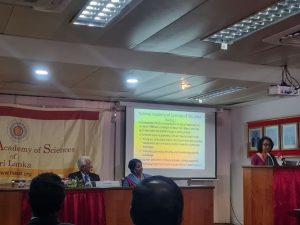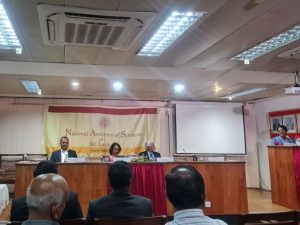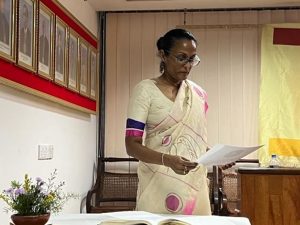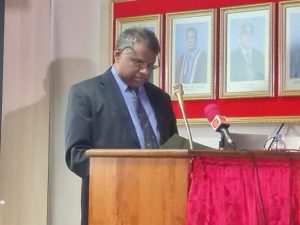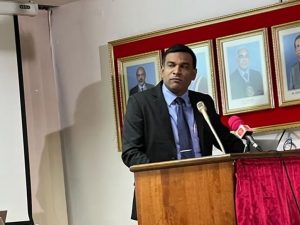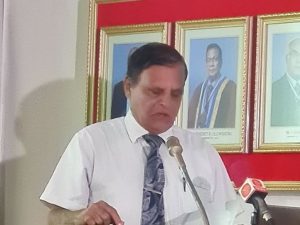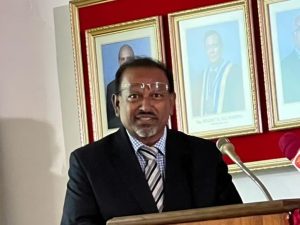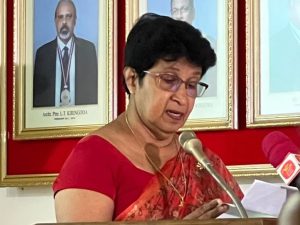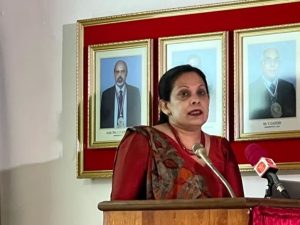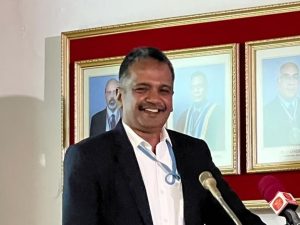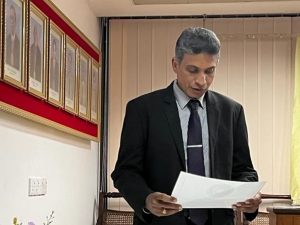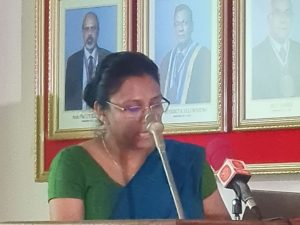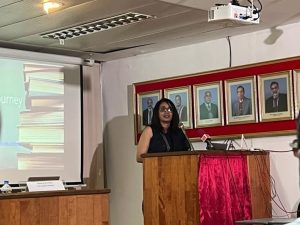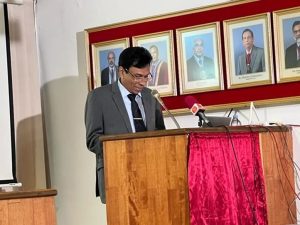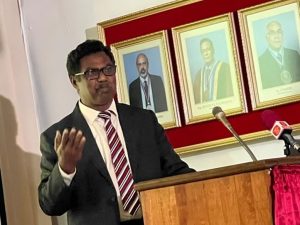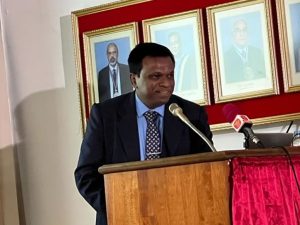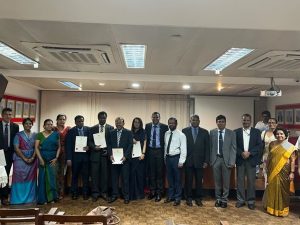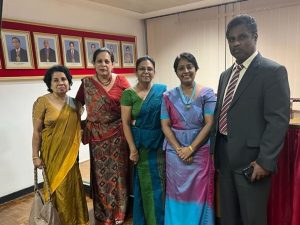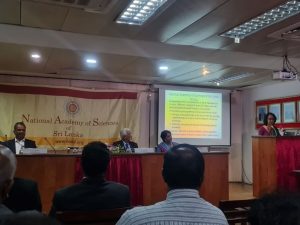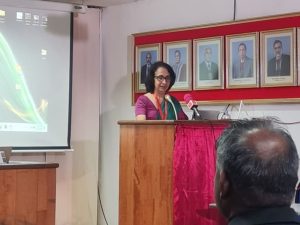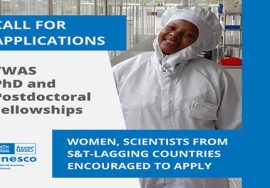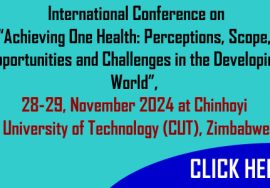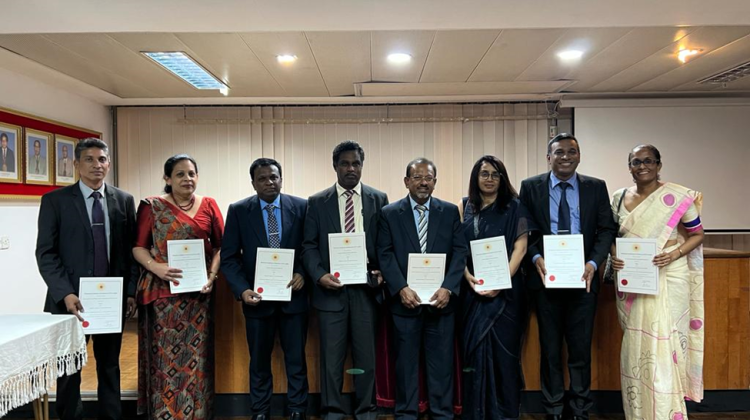
Induction Ceremony of New Fellows – 2022/2023
The Annual Induction Ceremony of Fellows of the National Academy of Sciences of Sri Lanka
This year’s Induction ceremony for eight new Fellows was held on 09th September 2023 at the Organisation of Professional Associations of Sri Lanka (OPASL). The ceremony began with the opening remarks of the President NASSL, Professor Nadira Karunaweera who stressed on the mandate of the NASSL as the apex body of scientists in the country to act as a consultative body to the Government and provide independent advice on policy matters related to science and technology. She also highlighted its recent activities related to science advice for policy making or policy reforms and promotion and dissemination of scientific knowledge. The new Fellows were presented by the proposers. The eight new Fellows elaborated on their contribution to science that ranged from research on Malaria vaccine production, orthodontics, crop and weed science, new meaning to Invasive plants, Earth’s mantle elements, conservation of endangered species, novel computer programming and nanotechnological advances made in relation to harnessing solar energy.
Following the Induction Ceremony was the keynote address by Professor Buddhi Marambe, Professor of Crop Science, University of Peradeniya on ‘Water, Fertilizer and Agriculture’.
Professor Marambe spoke on the current state of agriculture in the country resulting from ad hoc decisions of the Government taken without scientific basis; the ban on the import and use of synthetic fertilizer and pesticides has had unprecedented effect on agriculture and plantation crops. He highlighted the immense hardship to the farmers, their loss of livelihoods, and the national calamity resulting from the need to import rice to offset the production loss are the results of a decision taken without any scientific basis or consultation. The Governments’ inability to decide on water issues to paddy in a timely manner during the Yala season causing crop loss in certain areas of the country was highlighted. The need for proper coordination between agencies as well as creating awareness amongst the farmers was emphasised. Professor Marambe ventured to suggest that important messages such as when to plant can be telecasted in the national TV channels, such as in the morning newspaper reviews. He reiterated the 12th-century appeal made by the Great King Parakramabahu I who stated ‘Let not even a drop of water flow into the ocean without being made useful to man‘, adding that current research and field experience more than confirm the need for the wise use of water as stated by the great king.
Fellowship and dinner followed, where fellows had the opportunity to mingle and engage in lively discussions.


